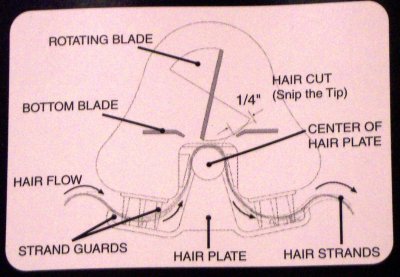I haven't spent much time thinking about what it meant for my father to re-enlist in the military until recently. Or, to be more specific, I didn't think about the risk to his safety or his life. Instead I've been preoccupied by what his involvment may mean for his ethics, his politics and his morals.
My father was in the Marines and reserves for 16 years, which means that he is four short years away from a military retirement. He informed me last summer that he was "considering" re-enlisting, doing weekend service as a JAG, and putting in his four years so he could have additional retirement income. Our conversation revolved around how I found this to be a uniquely selfish and short-sighted decision. He said that he had about a 50/50 chance of being assigned to a six-month stint in Afghanistan. This was all preliminary talk. He has constructed an intense set of justifications which include separating Afghanistan (which he views as a justified occupation) with Iraq (which he feels was an unjust war.) My objections to this include many, but the largest being that they are not separate conflicts from a military point of view and that people from Iraq and around the world are being transported, detained and tortured at known and black site prisons in Afghanistan. My personal objections to his leaving were about my family, my youngest siblings precarious age and unstable living situation and the overwhelming feeling that this was not about retirement, but escapism and the desire to play soldier in a real live war.
In the course of our discussion, my father seemed to change his mind. He did not speak of it the rest of the summer or that fall. Then eight months later, he was abruptly taking physicals and driving to Ft. Vancouver, WA to re-enlist.
We have not spoken extensively of this decision since it was made. Partially because he did it in relative secret and partially because I am afraid that we will run out of things to say to one another. As a JAG my father will play a critical role in advising soldiers about the legality of their actions in the arena of war. I send him reports from Human Rights First and accounts of soldiers being lied to about the restrictions of the Geneva Convention. I trust that he is doing the best he can to incorporate his own high standards into a compromised and corrupt system. At this point in this little endeavor, I can't ask for much more.
That has been consuming my thoughts. What role he will play in the continued abuse of detainees and citizens of Iraq and Afghanistan as well as the degredation of our troops by their leaders. I worry about his mindset, his self respect and his ability to withstand the new mentality that has permeated the military. But I have not worried much. If nothing else, he is a gentle, sentimental man enamored with the rule of law.
But on Monday I remembered that other thing he mentioned. Going to Afghanistan. I had not taken the time to process that risk or tabulate what it meant in my life and his. I have not allowed myself to process the danger or worry about his safety. To say I have avoided imagining it is the least -- I have actively pretended otherwise.
I'm sure my father thinks nothing of offering his service and potentially his life to the military. Perhaps not to the President or this war, but to his country and to his "brothers and sisters" in combat he is -- at least on the surface -- unflinching.
But I am not. I am horror struck by the prospect. Not just of a six month tour, but of the idea of sacrificing one's self to . . . well what? I can't even imagine what it would be for, who it would benefit, in whose honor or in pursuit of what abstract idea? I can't name one that seems solid. Patriotism? Honor? Freedom? Democracy? They meaning slips out from under the words and becomes immediately ironic, mocking, cruel.
I grew up in a small place. I went to a high school where kids (like me) were bussed in from rural areas north, south and east of town. When I went there, in the mid-90s, there were still less than 750 students at any one time.
So far, three soldiers from my high school have been killed. My neighbor Tyler Troyer.
Joe Blickenstaff, who graduated the same year as me. And Kevin Davis, who was 41.
Three sounds miniscule, but when I talk to many people in my life -- they have numbers. They say 3,000. They talk about stories they heard on the radio or the news, blogs they've come across, films. For me, it is trying to recall Joe Blickenstaff's face -- to really hold it in my mind and not confuse it with his older brother Eric or his sister Susan. Three is a lot to lose, from a small place.
I am struck also by where they came from. Reading through the casuality
list of soldiers from Oregon that have died is like reading a book on obscure places: Scapoose, Elgin, Pendelton, Corbett, Lebanon, Halsey. These are tiny spots, with multiple soldiers represented in the casulities list and innumerable more camped somewhere, fighting something. All of this was enough to make me feel removed from the esoteric conversations that often happen about the war in Brooklyn bars or my Manhattan office. But the reality that I have not been facing is something I can't even seem to articulate. My father is enlisted. He may go.
(post to be extended soon.)





